When are you going to float? It’s a question Jason Gissing is often asked about the online grocery business he co-founded at the turn of the millennium with Tim Steiner and Jonathan Faiman. Normally, he’d bat it away with a noncommital “never say never”. Today, however, the Ocado finance director is in uncharacteristically frank mood.
“I would rather shoot myself than be FD of a listed company,” he says dramatically in an exclusive interview with The Grocer. “I have no interest in it. I can think of no more thankless a task in corporate Britain. I didn’t start Ocado to sit in a room full of grey suits and have them abuse me about quarterly earnings figures. It’s just not what I want to do with my life.”
Last week, Ocado unveiled ambitious plans to become the first online grocery retailer to offer same-day deliveries (The Grocer, 19 July, p5). The announcement came just a week after it revealed it was launching a groundbreaking initiative to help consumers reduce food waste by displaying food use-by dates on its website and receipts (The Grocer, 12 July, p8).
There’s a good reason Ocado feels it can now put its foot on the gas. Last November it became profitable at an operating level for the first time. This month it passed the £1bn milestone in cumulative sales and Gissing believes annual sales will grow from £350m to £1bn “within the next three to four years”. Pre-tax profitability is also expected towards the end of this year, although when Ocado files its 2007 results at Companies House on 30 September it is expected to post a £33m pre-tax loss.
Having to explain such figures is just one reason Gissing doesn’t want to float the business. In Ocado’s giant Hatfield warehouse, all the orders are fed in and conveyors zig-zag high above carrying baskets that zoom around from packing station to packing station. Keeping the IT functioning as efficiently as possible and orders flowing accurately out is complex and not something Gissing is particularly keen to share with the competition.
“When you list a business you have to explain to the general public how it works,” he says. “We are years ahead of our competitors and I don’t really want to spend hundreds of thousands of pounds with lawyers documenting how it works and then publishing it. I don’t want to explain it to our rivals because it is bloody complicated.”
Besides, he has other things on his mind – same-day deliveries, which are currently being trialled, for one. “There are a tonne of reasons why people like shopping over the internet,” says Gissing. “It is convenient, easy, saves time, it is easier to budget because you can see everything you’re spending before you spend it. But there are downsides such as finding yourself with an empty fridge and wanting to eat. Well, we can address that with same-day delivery, which we’ll trial over the next few months.”
Waste is another issue that gets Gissing hot under the collar. He says he is “horrified” by the figure of one-third that Gordon Brown put on the amount of unopened food that ends up in the bin, which is partly why Ocado will be posting use-by dates on its website and receipts from September. In fact, he’s keen to turn Ocado into a more environmentally friendly business full stop and makes no bones of the fact that he wouldn’t get away with it at home if he didn’t do his utmost to be greener than green.
His wife, Katinka, a former European champion downhill skiier, comes from a family of dedicated environmentalists. Her grandfather, Arne Naess, founded the environmental movement Deep Ecology in the 1970s. “He is in his 90s now but he used to lie down in front of bulldozers when only complete nutters lay down in front of bulldozers,” says Gissing admiringly. “He was an extraordinary man. In fact, my wife gave me a book as a present about six months ago, which was the 100 greatest thinkers of the 20th century, and alongside Mahatma Gandhi and the Dalai Lama is Arne Naess. With that going on in the background it is very difficult for me to come to work and say: ‘I don’t give a shit about plastic bags.’ Or: ‘Don’t worry, we don’t need to use recycled paper.’ Because all I ever get at home is: ‘What are you doing about plastic bags? Are they biodegradable?’ Yes. ‘Are you using recycled paper?’ Yes. It is an ongoing dialogue. The power of a woman in a relationship is quite relentless.”
Gissing dreams of one day starting an Ocado-branded line of goods with minimal packaging and minimal impact on the environment. “Looking 10 or 15 years on, my dream would be a world where consumers are clearly very concerned about the environment. A lot of packaging exists because of the way food is sold. There is shape and colour on the one hand and temperature, supply chain and integrity on the other. I think when we are big enough we will be able to persuade suppliers if we say: ‘You don’t need to stick all this fancy packaging on this chocolate pudding, because when it is on our website, the customer is going to see the chocolate pudding in its finished state rather than a photo on a packet.’
“I can see a range of Ocado food at some point that sits alongside what we sell that has simple, pared-down, environmentally friendly packaging. But we need to be several times our current size to get suppliers to do that be cause this industry is huge and we are a tiny player.”
The business is already bulking up nicely. Eight years of hard slog developing the system in the Ocado warehouse, which is currently one third full, are paying off. “No-one else has the kind of automation we have and it took time to perfect it,” claims Gissing. “But now we know it works and works profitably we can just replicate it. In three or four years time the warehouse will be full.”
Ocado is already looking at further warehouses and Gissing is not putting a lid on the scale of its ambitions. “History may prove me wrong but I believe somewhere between 10% and 20% of the grocery market will go online in the next few years,” he says. “IGD has said that by 2012 11% of people will shop for groceries online and no other way, and more than 60% of people will use the internet to buy food. So in a £120bn market, if 15% of it goes online, that is a £18bn market. One of our warehouses will take £1bn so I think we have to build a couple more. There is no reason why we cannot take 25% to 30% market share.”
Especially with the sort of consumer that’s shaping today’s marketplace. “The MySpace generation is growing up spending their whole time building community pages online, texting each other like mad and playing on Xbox. When these guys start working they are going to embrace the internet in ways that make us look like amateurs.”
Gissing thinks Ocado can take advantage of the evolution in technology as well and believes mobile phones could one day revolutionise the way people shop. “When people were carrying round those Motorola brick things, it just screamed, ‘I’m an arse!’ But with the improvement in technology, you have these phones that are small, practical and affordable and the mobile phone penetration in this country is now more than 100%,” he says.
Neither he nor his fellow online crusaders at Ocado are afraid to think big. Who’s to say the Ocado own-label range won’t come sooner rather than later? As Gissing says: “It is a dream, it is a vision. But you know what? It was a dream to have a man in a van deliver something that was ordered over the internet.”
“I would rather shoot myself than be FD of a listed company,” he says dramatically in an exclusive interview with The Grocer. “I have no interest in it. I can think of no more thankless a task in corporate Britain. I didn’t start Ocado to sit in a room full of grey suits and have them abuse me about quarterly earnings figures. It’s just not what I want to do with my life.”
Snapshot
Name: Jason Gissing
Job: Finance director, Ocado
Age: 37
Family: married to Katinka with two children, aged two and three
Hobbies: I play tennis for Queen’s Club in central London and I play football for a team in Notting Hill. I also ski a lot – my wife was a junior European champion downhill skiier
Favourite holiday destinations: Anywhere with high mountains and lots of snow. This year we are going to Cornwall, though
If there’s one thing you could never accuse Gissing of being, it’s a suit. It goes without saying that he wears jeans to work and, unusually perhaps for an FD, he’s as interested in the big picture stuff as the financial minutiae. A good thing, too, because that picture’s just got bigger.Name: Jason Gissing
Job: Finance director, Ocado
Age: 37
Family: married to Katinka with two children, aged two and three
Hobbies: I play tennis for Queen’s Club in central London and I play football for a team in Notting Hill. I also ski a lot – my wife was a junior European champion downhill skiier
Favourite holiday destinations: Anywhere with high mountains and lots of snow. This year we are going to Cornwall, though
Last week, Ocado unveiled ambitious plans to become the first online grocery retailer to offer same-day deliveries (The Grocer, 19 July, p5). The announcement came just a week after it revealed it was launching a groundbreaking initiative to help consumers reduce food waste by displaying food use-by dates on its website and receipts (The Grocer, 12 July, p8).
There’s a good reason Ocado feels it can now put its foot on the gas. Last November it became profitable at an operating level for the first time. This month it passed the £1bn milestone in cumulative sales and Gissing believes annual sales will grow from £350m to £1bn “within the next three to four years”. Pre-tax profitability is also expected towards the end of this year, although when Ocado files its 2007 results at Companies House on 30 September it is expected to post a £33m pre-tax loss.
Having to explain such figures is just one reason Gissing doesn’t want to float the business. In Ocado’s giant Hatfield warehouse, all the orders are fed in and conveyors zig-zag high above carrying baskets that zoom around from packing station to packing station. Keeping the IT functioning as efficiently as possible and orders flowing accurately out is complex and not something Gissing is particularly keen to share with the competition.
“When you list a business you have to explain to the general public how it works,” he says. “We are years ahead of our competitors and I don’t really want to spend hundreds of thousands of pounds with lawyers documenting how it works and then publishing it. I don’t want to explain it to our rivals because it is bloody complicated.”
Besides, he has other things on his mind – same-day deliveries, which are currently being trialled, for one. “There are a tonne of reasons why people like shopping over the internet,” says Gissing. “It is convenient, easy, saves time, it is easier to budget because you can see everything you’re spending before you spend it. But there are downsides such as finding yourself with an empty fridge and wanting to eat. Well, we can address that with same-day delivery, which we’ll trial over the next few months.”
Waste is another issue that gets Gissing hot under the collar. He says he is “horrified” by the figure of one-third that Gordon Brown put on the amount of unopened food that ends up in the bin, which is partly why Ocado will be posting use-by dates on its website and receipts from September. In fact, he’s keen to turn Ocado into a more environmentally friendly business full stop and makes no bones of the fact that he wouldn’t get away with it at home if he didn’t do his utmost to be greener than green.
His wife, Katinka, a former European champion downhill skiier, comes from a family of dedicated environmentalists. Her grandfather, Arne Naess, founded the environmental movement Deep Ecology in the 1970s. “He is in his 90s now but he used to lie down in front of bulldozers when only complete nutters lay down in front of bulldozers,” says Gissing admiringly. “He was an extraordinary man. In fact, my wife gave me a book as a present about six months ago, which was the 100 greatest thinkers of the 20th century, and alongside Mahatma Gandhi and the Dalai Lama is Arne Naess. With that going on in the background it is very difficult for me to come to work and say: ‘I don’t give a shit about plastic bags.’ Or: ‘Don’t worry, we don’t need to use recycled paper.’ Because all I ever get at home is: ‘What are you doing about plastic bags? Are they biodegradable?’ Yes. ‘Are you using recycled paper?’ Yes. It is an ongoing dialogue. The power of a woman in a relationship is quite relentless.”
Gissing dreams of one day starting an Ocado-branded line of goods with minimal packaging and minimal impact on the environment. “Looking 10 or 15 years on, my dream would be a world where consumers are clearly very concerned about the environment. A lot of packaging exists because of the way food is sold. There is shape and colour on the one hand and temperature, supply chain and integrity on the other. I think when we are big enough we will be able to persuade suppliers if we say: ‘You don’t need to stick all this fancy packaging on this chocolate pudding, because when it is on our website, the customer is going to see the chocolate pudding in its finished state rather than a photo on a packet.’
“I can see a range of Ocado food at some point that sits alongside what we sell that has simple, pared-down, environmentally friendly packaging. But we need to be several times our current size to get suppliers to do that be cause this industry is huge and we are a tiny player.”
The business is already bulking up nicely. Eight years of hard slog developing the system in the Ocado warehouse, which is currently one third full, are paying off. “No-one else has the kind of automation we have and it took time to perfect it,” claims Gissing. “But now we know it works and works profitably we can just replicate it. In three or four years time the warehouse will be full.”
Ocado is already looking at further warehouses and Gissing is not putting a lid on the scale of its ambitions. “History may prove me wrong but I believe somewhere between 10% and 20% of the grocery market will go online in the next few years,” he says. “IGD has said that by 2012 11% of people will shop for groceries online and no other way, and more than 60% of people will use the internet to buy food. So in a £120bn market, if 15% of it goes online, that is a £18bn market. One of our warehouses will take £1bn so I think we have to build a couple more. There is no reason why we cannot take 25% to 30% market share.”
Especially with the sort of consumer that’s shaping today’s marketplace. “The MySpace generation is growing up spending their whole time building community pages online, texting each other like mad and playing on Xbox. When these guys start working they are going to embrace the internet in ways that make us look like amateurs.”
Gissing thinks Ocado can take advantage of the evolution in technology as well and believes mobile phones could one day revolutionise the way people shop. “When people were carrying round those Motorola brick things, it just screamed, ‘I’m an arse!’ But with the improvement in technology, you have these phones that are small, practical and affordable and the mobile phone penetration in this country is now more than 100%,” he says.
Neither he nor his fellow online crusaders at Ocado are afraid to think big. Who’s to say the Ocado own-label range won’t come sooner rather than later? As Gissing says: “It is a dream, it is a vision. But you know what? It was a dream to have a man in a van deliver something that was ordered over the internet.”




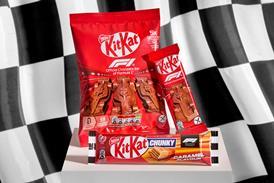



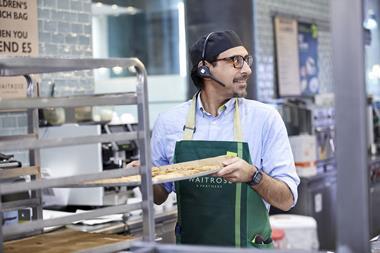
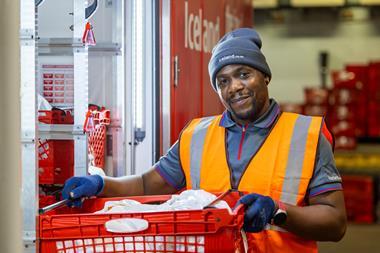
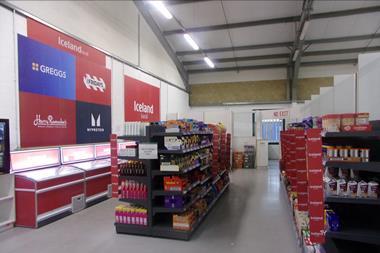

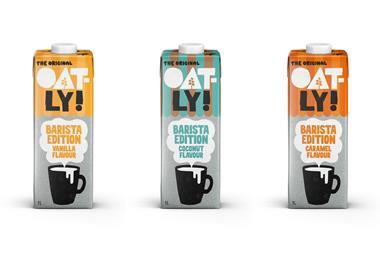
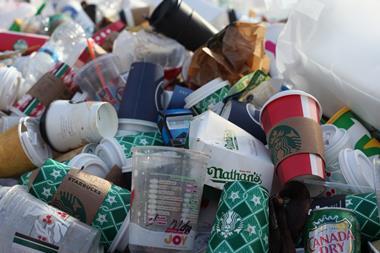
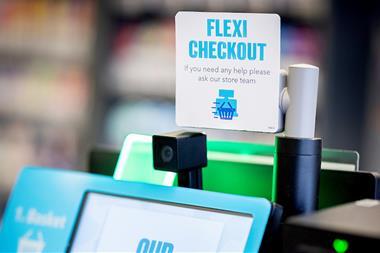


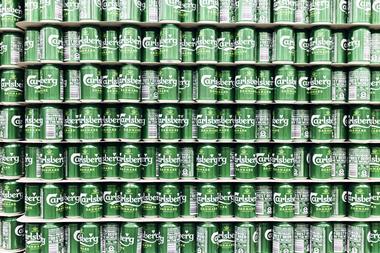

No comments yet